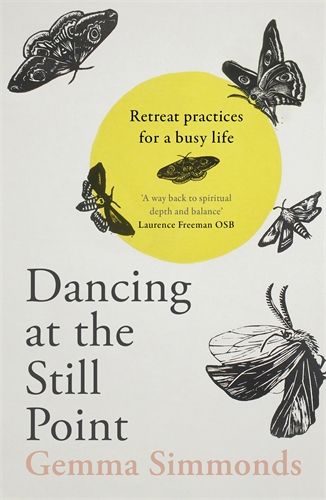Why go on retreat?

Making a retreat is not about hunkering down into some defensive bunker against the world, but about stepping back
from things in order to discover strengths and resources to which we don't always allow ourselves access. Some people find it necessary to go right away and cut themselves off from all other distractions and calls on their attention.
A retreat can be an important part of the preparation for making a significant choice or for working out how that choice is to be lived out in practice. Prior to becoming leaders of their respective countries, both Julius Nyerere in Tanzania and Garret Fitzgerald in Ireland are reported to have made retreats.
We are constantly taking in information, consciously and unconsciously, but many of us are less skilled at processing and interpreting it. The human mind and soul are not some infinite filing cabinet into which endless data can be crammed. Some measure of sifting and sorting needs to be done in order to make sense of the huge amount of data that comes our way.
In the same way, religious believers carry around a considerable amount of religious information in their heads, but the journey from head to heart can be a long and challenging one and many travellers get stuck in the waiting room without ever quite boarding the train. The silence and withdrawal of a retreat can take many forms and while some people take a week or even a full month to go into complete silence, others make retreats in daily life, with the time for prayer and reflection carved out amid their normal schedules and commitments.
This book is principally aimed at people seeking to make a retreat of whatever form in their own surroundings. No one ever learned to appreciate a great work of art by pressing their nose against it. But while stepping back can help us to focus better, withdrawal is not an end in itself. It's about creating space, both physical and mental, for effective reflection to take place.
Our relationship with God works very like any other kind of relationship. If we never take time to be with those we love, to listen to them and to express our own feelings, the relationship will get stuck and never move beyond the initial stages.
We don't need our surroundings to be perfect in order to make a helpful retreat. It can become a distraction from the real thing to spend all our energy getting the plainchant or the whale music and the scented candles and the decor just right, rather like preparing for an intimate dinner with someone we love and getting so caught up in the menu and the table decorations that we forget to welcome the beloved to the meal itself.

Some people's work and family commitments don't make the finding of time and space at home possible. They develop habits like sitting in the car for half an hour to be quiet with God before going home from work, or locking themselves in the bathroom and having a leisurely bath in God's presence, while the family rampages outside the door.
During the Soviet era, a sister of my congregation was imprisoned for 14 years in the Gulag. Herded into a small space with over 80 other women from every point on the political and religious spectrum in highly unsanitary conditions, she found herself in tense circumstances far removed from the quiet and peace of her convent. Sister Clara suggested that they make a retreat together before they ended up killing one another.
They decided on a programme of reflection and sharing during the six weeks of Lent, each from her own perspective, whenever their prison routine allowed for it. The time spent, even under these impossible conditions, proved the foundation of greatly improved relationships and resilience within the group as the women mined the depths of their own hearts and beliefs to find hidden sources of strength.
Each found a way, both through her own beliefs and values and through listening to those of others, to move beyond
the horror and the cruelty of the Soviet prison system. Even in circumstances such as these, the enrichment of a retreat is possible.
In 1967, at a gathering of 30,000 hippies in San Francisco, American psychologist Timothy Leary advocated that they
'turn on, tune in, drop out'. The practices that went with his famous mantra are light years away from the practice of
retreat advocated here, but there are some similarities with retreats. A retreat is an opportunity to 'turn off' the endless
drone of advertising and the audio and visual white noise of the computer screen with its barrage of information, fake
news and trivial connections. This opens up the possibility of 'turning on and tuning in' to the divine life that simmers within our own deeper thoughts and imaginings, which often remain stunted and unfulfilled through lack of proper attention.
If, as Plato quotes Socrates as saying, 'the unexamined life is not worth living', then many of us experience life at a fraction of its potential value, because so much of it goes unreflected on. When we tune in, we may find buried treasures, or warning signs that should not be ignored. We may also find that, far from dropping out, tuning in may help us to dive more deeply into the focused and purposeful life we have been wanting to live.
By Gemma Simmonds, taken from her new book, 'Dancing at the Still Point: Retreat practices for a busy life', out from SPCK priced £8.99.











